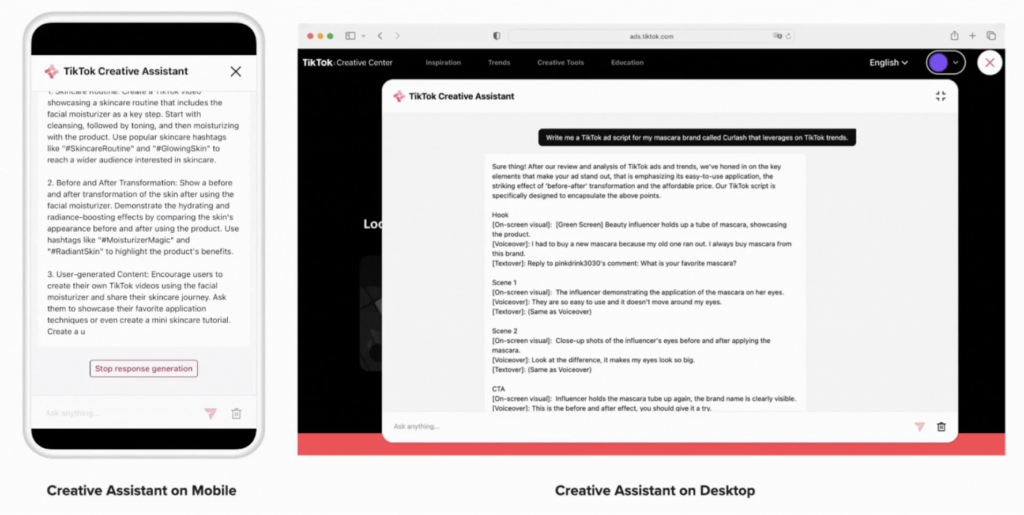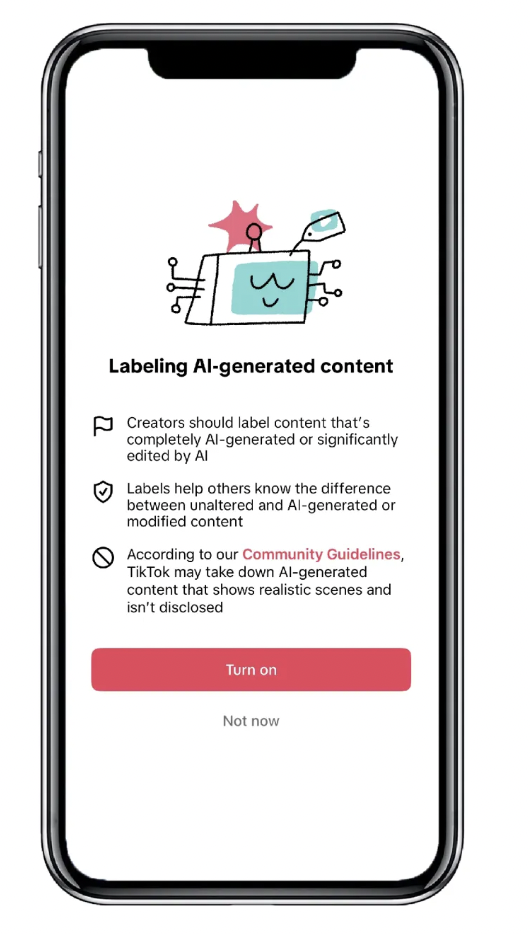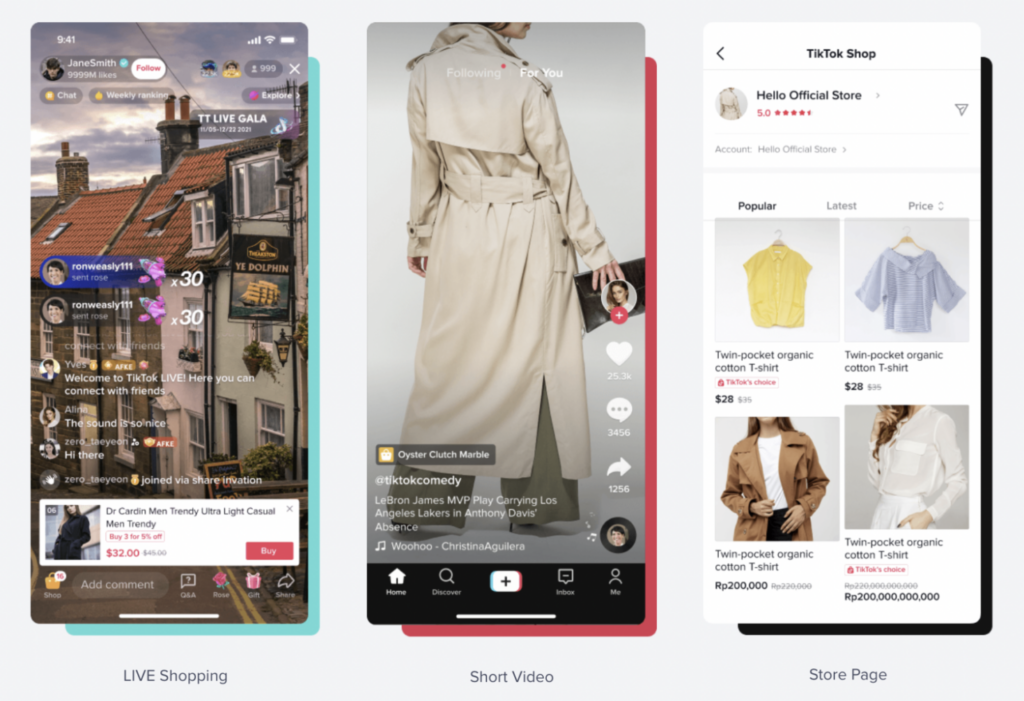TikTok – Transform Entertainment with AI

TikTok is currently using various cutting-edge machine learning and artificial intelligence algorithms to lead the global trend of short videos.
Rapid Development of TikTok
TikTok, a short video-sharing platform owned by ByteDance, was founded in September 2016 by Zhang Yiming. Videos on TikTok have lengths between 3 seconds and 10 minutes and have topics such as music, memes, dancing, and talents. TikTok’s development is very rapid – it attracted 100 million users with 1 billion daily video views within a year. In September 2017, TikTok was launched into the international market and became the most downloaded app in the US in 20181. Nowadays, TikTok is one of the most popular social media platforms. However, as a social media platform, TikTok does not rely on one’s social network. Instead, it features the “For You” page, where one can watch never-ending personalized streams of TikTok videos instead of searching for a title or clicking into a channel. AI takes over the decision-making process for the user.
AI-driven Recommendation Engine
The personalized video stream is powered by the robust “large-scale AI models”2. The machine learning algorithm learns users’ past behavior to continuously optimize its recommendation. TikTok’s recommendation system follows a “User-Center Design” to only recommend content users would love. The algorithm is trained on a combination of content data, user data, and scenario data4. With one of the most powerful video recommendation engines in the industry and an immersive browsing experience, TikTok reaches 95 minutes of average daily usage (compared with 17 minutes for YouTube and 29 minutes for Instagram) and 1.67 billion monthly active users3. Besides video recommendations, TikTok also employs AI for personalized ads, making the advertising experience more relevant and engaging to the viewers5. Therefore, the platform can increase its ad revenue while not affecting the user experience too much.
Creative Assistant – AI as an Inspirational Creation Tool
In June 2023, TikTok launched “Script Generator” in its Creative Center. The ad script generator tool can suggest several video scripts for the creator to consider based on its rich ads database and user input of the industry, product name, product description, and optional keywords8. In September 2023, TikTok launched Creative Assistant, another tool powered by AI to supercharge the content ideation process. The virtual assistant can help creators, especially advertisers, craft effective campaigns or videos with a chatbot. Users can input prompts like “Come up with TikTok ideas for my brand named [name], promoting [topic].” Creative Assistant helps brainstorm ideas, assist in writing, and provide advice to boost creativity for creators and improve ad campaigns’ performance on the platform9.
Challenges: Mislead of Generative AI
With the surging development and interest in Generative AI, many creators on TikTok use Generative AI for content creation. Generative AI uses existing content, like images and text, to create new content with a large training database. Besides, creators can also employ Generative AI to create augmented reality (AR) effects for TikTok videos13. While TikTok welcomes content creation with the assistance of AI, sometimes AI might confuse or mislead viewers. Recently, there has been a broader push for transparency around content generated by AI. In March 2023, TikTok updated its community policies toward AI. For example, the policy states that synthetic or manipulated media with realistic scenes must be explicitly disclosed with a sticker or caption like “fake” and “synthetic.” It also bans synthetic media for real private figures. For synthetic public figures, the synthetic media should not be used for endorsement or policy violation. For community health, it does not allow synthetic media that distorts the truth or causes serious harm to the subjects of the video. Technology is quickly developing and new trends are coming and going. As one of the most influential platforms, TikTok should closely witness its community and update its policies to meet the expectations of its users11.
Also, as AI-generated content becomes more and more popular, it might discourage creators who make original content.
In September 2023, Tiktok launched a new AI labeling tool that allows creators to label their AI-generated content. With the labeling tool, TikTok makes it easier for creators to comply with synthetic media policies. Moreover, TikTok is also developing tools to automatically label AI-generated content12.
Future Opportunities: Use AI to Identify and Sell products
Recently, TikTok has been changing into e-commerce from a video-sharing platform. In 2021, TikTok launched its new e-commerce product, TikTok Shop, in the UK, Indonesia, and then US. Previously, creators posted videos tagging their TikTok Shop products to promote products and earn revenue, similar to how Facebook, Snapchat, and Pinterest do. In 2023, however, TikTok is experimenting with using artificial intelligence to identify products in any videos (with or without shopping content) and recommend similar products. TikTok uses computer vision to recognize items in videos and suggest similar product categories in the TikTok Shop marketplace. There is a button on the video directing users to TikTok’s Shop tab. This integrates e-commerce into TikTok’s user experience and brings extra revenue for TikTok and the creators. With the large scale of user video-streaming behavior data and robust recommendation engine, it is not difficult to imagine how TikTok can understand user preferences and excel in e-commerce. Now, TikTok is quickly developing the Shop – launching holiday incentives for customers, shipping discounts for sellers, and bonuses to influencers for adding affiliate links6.
TikTok’s Future for Challenges and Opportunities
From AI for decision-making to AI for creation, TikTok is taking the lead in AI and transforming video streaming and social media rapidly. TikTok is now adopting AI to power more of its features like camera tools, editing, and filters. With the quick development of machine learning and AI algorithms, TikTok should continue to optimize its own recommendation engines while paying attention to concerns with Generative AI. Similar to other social media platforms, it should ensure the privacy and safety of its user data. In the future, with the robust AI algorithm, Bytedance, the parent company of TikTok, wants to commoditize AI and open it as a service, similar to Google and Amazon7.
Citations:
1. https://en.wikipedia.org/wiki/TikTok
3. https://www.demandsage.com/tiktok-user-statistics/#:~:text=How%20Much%20Time%20Do%20TikTok,2.3%20years%20on%20the%20app.
6. https://www.businessinsider.com/tiktok-tests-using-ai-detect-products-in-videos-drive-sales-2023-10
8. https://www.socialmediatoday.com/news/tiktok-new-ai-ad-script-generator-tool-creative-center/652647/
9. https://searchengineland.com/tiktok-creative-assistant-ad-432660
12. https://techcrunch.com/2023/09/19/tiktok-debuts-new-tools-and-technology-to-label-ai-content/
13. https://effecthouse.tiktok.com/learn/guides/general/using-generative-ai-to-create-tiktok-effects






Great post! It’s fascinating to see AI’s evolution from merely targeting ads and content to actively co-creating it, as evident in tools like Copilot, ChatGPT, and TikTok. This shift raises intriguing questions about the future of creativity in advertising. If AI continues to generate content trained on existing human-made resources, what happens when these are fully leveraged? Will AI be able to match human ingenuity in crafting original, perhaps even extravagant, ad scripts? This intersection of AI’s analytical prowess and human creativity could define the next frontier in advertising and content creation.
Great job Serena! AI-based influencers are becoming a real thing now, and I believe they will exploit an underserved niche of users who crave content that is hyper-customized towards them in a way that no humans can match. I also think the clothes detection feature is absolutely huge…especially if the system can automatically suggest similar looks at different price points. I think a lot of the AI-based use cases you’ve mentioned are being implemented by all the major social media companies…do you think TikTok (or Bytedance) has any unique advantages in this space compared to the other players?
Amazing post Serena! I have honestly been annoyed by how precise the AI recommendation algorithms work for me on TikTok and sometimes the over-recommendation of AI when I would click once on a random topic then all videos suggested next would be on that one topic I did not care about, which just seemed to me like a great invasion of privacy. I wonder the role of regulators in this field. Should they put more restrictions on the AI personalization part? Should they release this freedom back to the users?